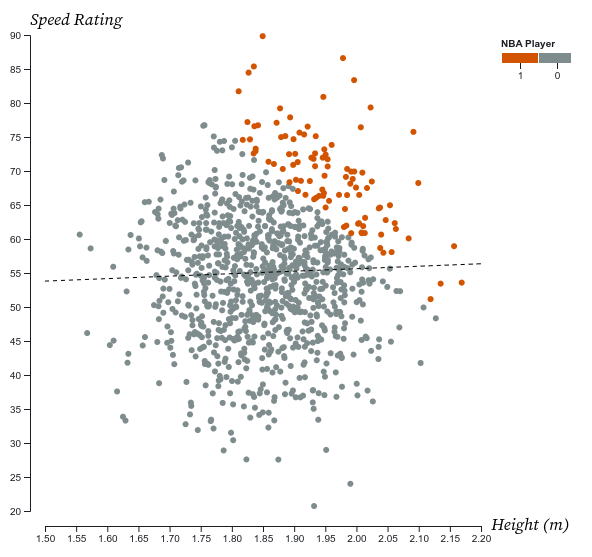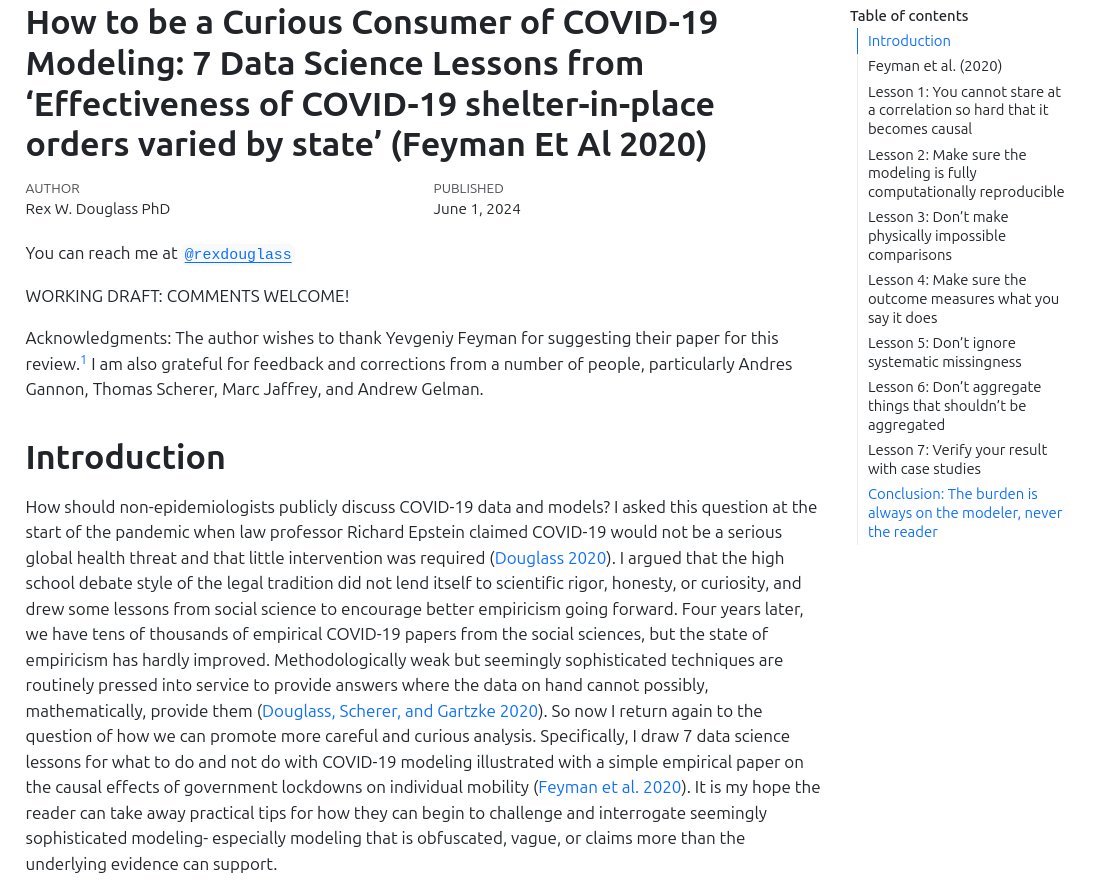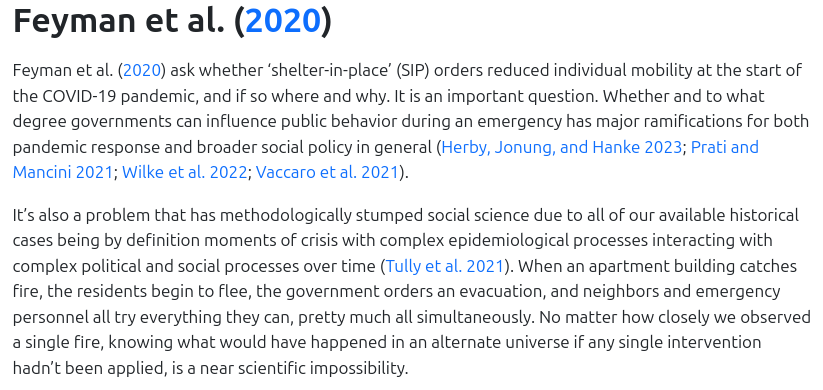
Applied Scientist in Industry. Previously UCSD. Princeton PhD.
Follow me for recreational methods trash talk.
How to get URL link on X (Twitter) App


 Say my research design is confounded by annual events I don't understand and can't measure well, so I include a time fixed effect to "control" for those unmeasured confounders.
Say my research design is confounded by annual events I don't understand and can't measure well, so I include a time fixed effect to "control" for those unmeasured confounders.
https://twitter.com/RexDouglass/status/1887342734186574154The federal government doesn't rule the states, it arbitrates cooperation between the states. That's still true despite everyone's best effort to try to capture D.C. and impose their will on the rest of the country for a hundred years.

https://twitter.com/RexDouglass/status/1856750134065074335I'll start first with a controversial but useful assumption-we are living in a deterministic universe. It's just a state machine. Every turn of the crank updates where all the energy/matter is. Until heat death. Probability/uncertainty are information concepts not physical ones.
https://twitter.com/hillaryvipond/status/1845534883277652319A junior engineer doesn't design a plane part that kills a bunch of people and then all the engineers in their field take to Twitter to argue how no one is really responsible and to stop talking about it.
https://twitter.com/MaartenvSmeden/status/1434619122189545472When I calc the mean height in my family, that measurement doesn't come with CI. It's fixed. When I regress it on age in my family, that slope doesn't come with CI, it's fixed. For it to need CI you have to explicitly introduce more machinery. Not just because lm() reports it.

https://twitter.com/MichaelRKistner/status/1805358320594960464What I've seen over and over again is an author placing the burden on the reader to guess how the strategy fails. It's a game. Anyone with deep knowledge of the data generating process probably can think of 50 ways but the avg reader/reviewer can't.
https://x.com/RexDouglass/status/1798535489022206037

 Feyman et al. (2020) ask whether COVID-19 shelter-in-place orders actually kept people inside or if they were ignored and people would have stayed inside anyway.
Feyman et al. (2020) ask whether COVID-19 shelter-in-place orders actually kept people inside or if they were ignored and people would have stayed inside anyway.
https://twitter.com/RexDouglass/status/1795828633359310886In this example, something happened at time t and there's a visible discontinuity in some outcome Y. Cool. Something happened on day t that we want to try to call a treatment D. Lots of other stuff probably happened too, and lots of stuff Z probably cause both Y and D.

https://twitter.com/betanalpha/status/1635267134648643586
https://twitter.com/RexDouglass/status/1610759393435594752?s=20


https://twitter.com/tcarpenter216/status/1609706097417543681For more context, I used to like this plot (used in a course myself once), but have since grown to dislike it more and more. On the high end you have people finding specific mechanisms in NN. On the low end you have people presenting single parameters from garbage can regressions

https://twitter.com/BreznauNate/status/1586264454181933058There are lots of reasons for this